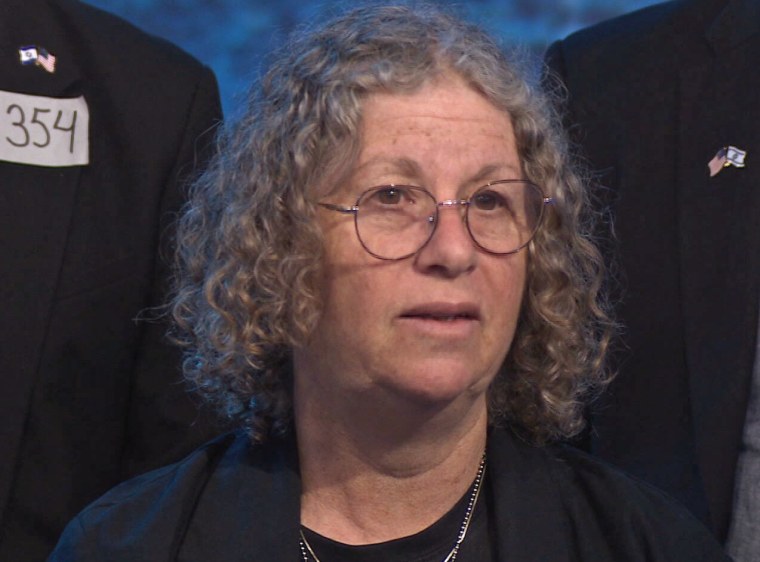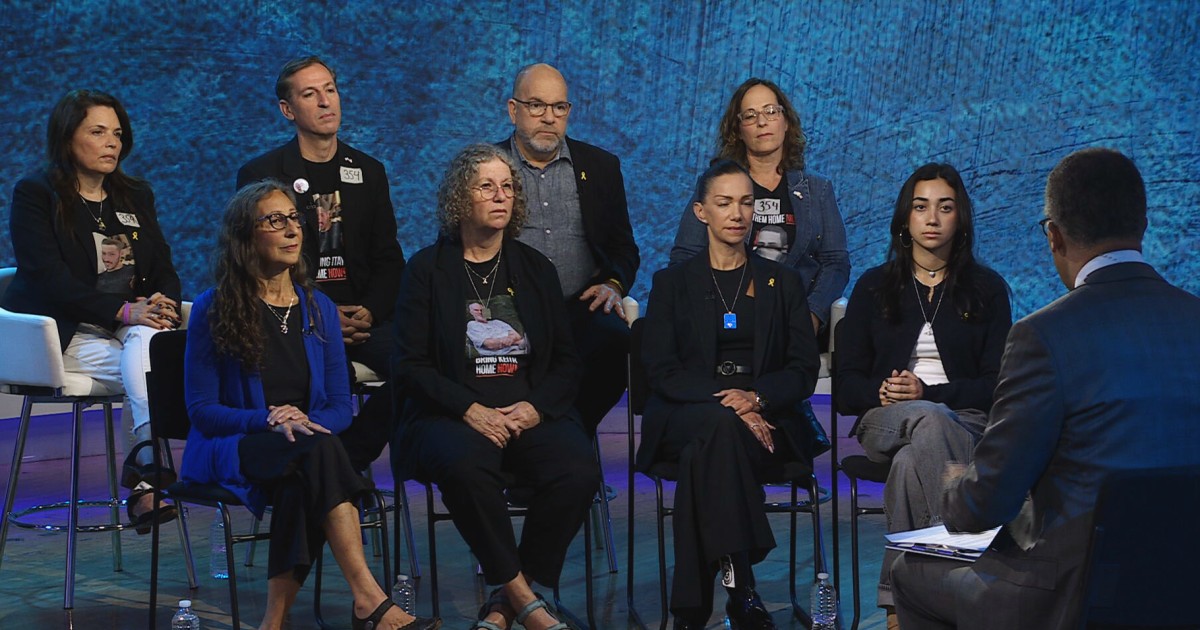Aviva Siegel, an Israeli woman who was kidnapped by Hamas on Oct. 7 and held for more than 50 days until she was freed during a temporary cease-fire, told NBC News she is determined to keep “shouting and screaming for the hostages to come home” — including her husband, Keith, who is believed to be alive.
“I have been talking about those tunnels,” Siegel told NBC News’ Lester Holt on Tuesday during a trip to New York amid the start of the United Nations General Assembly, referring to where she was held captive before her release in November.
“Keith and I nearly died in the tunnel because there was no oxygen, and I’ve been talking about it over and over and over — hard stories. But I want to just tell everybody, we’re not going to stop,” she said in an interview alongside other people whose loved ones were taken captive in Hamas’ terror attack in Israel.
“We’re going to talk, and I’m going to tell all the hard stories,” she added.
For more on this story, tune in to “NBC Nightly News with Lester Holt” tonight at 6:30 p.m. ET/5:30 p.m. CT or check your local listings.
Siegel, 63, recalled some of the conditions inside the vast network of tunnels underneath the Gaza Strip. She described hostages thrown to the ground on “filthy, dirty mattresses,” forbidden from speaking or moving, confined to dark spaces. She recounted the physical agony of being starved for “24 hours or even more.”
“I was there in those same conditions,” Siegel added, “and I thought that I’m going to die all the time.”
The group that spoke to NBC News on Tuesday also included Jonathan Dekel Chen, the father of Sagui Dekel-Chen; Orna Neutra, the mother of Omer Neutra; Yael Alexander, the mother of Edan Alexander; Mika Alexander, Edan’s sister; Andrea Weinstein, sister of Judy Weinstein and sister-in-law of Gadi Haggai; and Ruby and Hagit Chen, the parents of Itay Chen.
Officials confirmed late last year that Judy Weinstein and Haggai had most likely been killed on Oct. 7, and their bodies are now being held in Gaza. Israeli military officials told Ruby and Hagit Chen in early March that Itay was believed to have been killed on Oct. 7.
Itay’s parents are still holding out hope that he might be alive. “We are not mourning yet,” Hagit Chen said. “We have no physical evidence that Itay’s not alive.”

Orna Neutra said she feels the hostage families are “fighting this war for attention” against a chaotic backdrop that includes Israel’s devastating military campaign in Gaza, the deaths of more than 40,000 Palestinian civilians, and the worsening conflict between the Israeli military and the Iran-backed militant group Hezbollah in Lebanon.
“The events in the Middle East have been shifting constantly and we’re here today again … to bring this issue [and] make sure that it is kept front and center,” Orna Neutra said. She added that she is pleading for “de-escalation,” an immediate hostage release and greater protections for “innocents” in the conflict, including the citizens of Gaza.
“The only way to stop this, we hope, is by arriving now at a negotiated settlement between Israel and Hamas,” Jonathan Dekel-Chen said.
Jewish people around the world are preparing to observe Rosh Hashanah, the Jewish new year, in early October — the first since Oct. 7. Aviva Siegel said she cannot fathom the idea of celebrating what is normally a festive holiday this year.
“We are going to just cry,” she said, breaking down in tears. “I cannot do Rosh Hashanah without Keith.”


